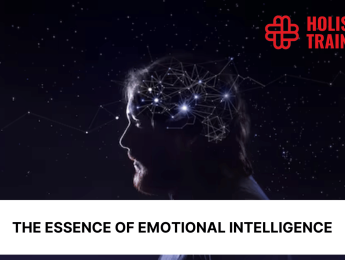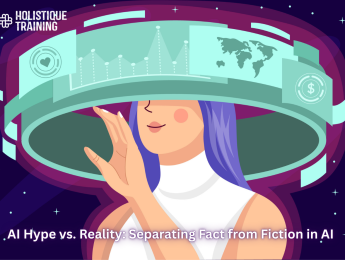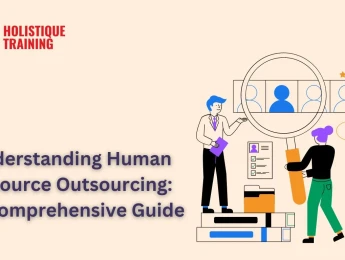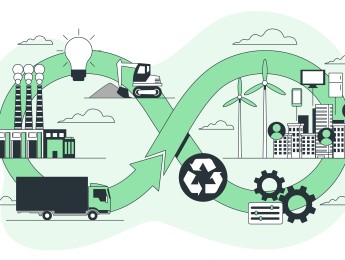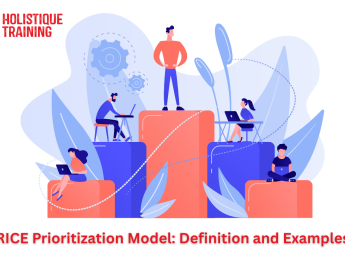- Table of Contents
- Introduction
- The Essence of Emotional Intelligence
- Elevating Relationships through High EQ
- Enhanced Empathy and Understanding
- Conflict Resolution with Grace
- Authenticity and Trust
- Inspiring Positive Vibes
- Building Lasting Rapport
- Emotional Support and Resilience
- The 4 Pillars of Emotional Intelligence: An In-depth Analysis
- 1. Self-awareness
- 2. Self-management
- 3. Social awareness
- 4. Relationship management
- Cultivating Your Emotional Intelligence
- 1. Practice Mindfulness for Enhanced Self-Awareness
- 2. Develop Practical Emotional Regulation Strategies
- 3. Cultivate Empathy Through Active Listening
- 4. Hone Your Communication Skills for Effective Relationship Management
- 5. Seek Feedback and Continuous Learning
- Emotional Intelligence in Leadership
- Empathy-Driven Leadership
- Conflict Resolution
- Motivating Teams
- Emotional Intelligence and Mental Health
- Stress Management
- Emotion Regulation
- Empathy for Self
- The Evolution of Emotional Intelligence in the Digital Age
- Virtual Communication
- Digital Well-being
- AI and Emotional Intelligence
- Conclusion
Introduction
Emotional intelligence (EI) stands as one of the most crucial and often overlooked aspects of personal development. While intelligence quotient (IQ) measures cognitive abilities, emotional intelligence focuses on our capacity to understand, manage, and utilise emotions effectively. In a world that thrives on complex social interactions and interconnectedness, having a high EQ can significantly impact the quality of our relationships and overall well-being. In this comprehensive exploration, we delve into the four pillars of emotional intelligence and provide insights on how you can cultivate and enhance your EQ for more fulfilling connections. Additionally, we will introduce three fascinating facets of emotional intelligence that shed light on its broader implications and applications.
The Essence of Emotional Intelligence
Before diving into the pillars themselves, let's establish a solid foundation by understanding what emotional intelligence truly entails. Emotional intelligence can be defined as the ability to recognise, comprehend, manage, and use emotions in ourselves and others effectively. It's not just about being in touch with your feelings; it also involves empathy, social awareness, and interpersonal skills. EQ is a skill that can be learned and developed over time, and it plays a pivotal role in how we navigate life's challenges and build meaningful relationships.
Emotional intelligence isn't a fixed trait; it's a dynamic skill that evolves with time and effort. Understanding its significance is the first step toward harnessing its power. Let's now explore the profound impact of emotional intelligence on relationships and various aspects of life.
Elevating Relationships through High EQ
In a world that thrives on complex social interactions, the importance of emotional intelligence (EQ) cannot be overstated. Imagine being in a situation where you're conversing with a friend, colleague, or family member, and you're able to effortlessly sense their emotions and respond in a way that makes them feel heard and understood. This is the power of a high EQ—it transforms ordinary interactions into meaningful connections that leave a lasting impact. In fact, according to Help Guide, the key to enduring intimate relationships lies in emotional intelligence (EQ), primarily because it heightens our sensitivity to the constant shifts, whether significant or subtle, taking place within ourselves and those around us. Let's dive deeper into how emotional intelligence enhances relationships and explore additional facets of its impact.
Enhanced Empathy and Understanding
At the heart of emotional intelligence lies empathy—the ability to step into another person's shoes and comprehend their feelings and perspectives. High EQ individuals possess an uncanny knack for understanding the unspoken emotions that lie beneath the surface. They're not only attuned to words but also to subtle cues like body language, tone of voice, and facial expressions. This acute sensitivity allows them to respond in ways that validate others' emotions, fostering an atmosphere of acceptance and warmth.
When you engage with someone who demonstrates empathy, you're more likely to feel valued and validated. This deepens the connection and encourages open communication. For instance, a friend who can sense your excitement about a new project and genuinely share in your enthusiasm creates a bond that transcends superficial interactions.
Conflict Resolution with Grace
Life isn't without its share of disagreements and conflicts. However, what separates relationships that endure from those that falter is the way conflicts are managed. High EQ individuals approach conflicts with a sense of emotional regulation and a focus on finding solutions rather than assigning blame. They're skilled at depersonalising issues and addressing the problem at hand rather than allowing emotions to escalate.
Through effective communication and empathy, those with a strong EQ can de-escalate tense situations and guide conversations toward productive outcomes. This ability to navigate conflicts without causing irreparable damage not only maintains relationships but also fosters an environment where differing opinions are valued.
Authenticity and Trust
Authenticity is a cornerstone of healthy relationships. When you interact with someone who is genuine and open about their emotions, it creates a safe space for you to reciprocate. Emotional intelligence enables individuals to be honest and vulnerable about their feelings, which encourages others to do the same.
Imagine having a manager who is transparent about their concerns and uncertainties, rather than projecting an image of invulnerability. This transparency builds trust within teams and promotes a culture where mistakes are seen as opportunities for growth rather than reasons for retribution.
Inspiring Positive Vibes
Have you ever been around someone whose positivity is infectious? High EQ individuals often radiate positivity and optimism, even in challenging circumstances. Their ability to manage their own emotions and stay composed influences those around them. This positivity is particularly valuable in leadership positions, where it can motivate teams and create a supportive work environment.
When a leader maintains an upbeat attitude during tough times, it fosters resilience and encourages the team to persevere. This kind of emotional leadership can turn setbacks into stepping stones and challenges into opportunities for growth.
Building Lasting Rapport
High EQ individuals excel at forming deep and lasting connections. Their ability to establish rapport is rooted in their genuine interest in others' lives and experiences. By actively listening and showing curiosity, they create bonds that extend beyond the surface level. This can be observed in friendships that withstand the test of time and professional relationships that evolve into partnerships.
When you engage with someone who is sincerely interested in your well-being, it makes you feel valued and appreciated. This sense of being understood and acknowledged nurtures a connection that goes beyond the fleeting interactions of everyday life.
Emotional Support and Resilience
Life is filled with ups and downs, and having a support system is crucial. High EQ individuals provide a unique form of support—they not only lend a listening ear but also possess the skills to guide you through your emotional journey. Whether you're facing a personal crisis or celebrating a milestone, their ability to validate your feelings and offer constructive insights can be incredibly comforting.
Moreover, in times of stress or adversity, a strong EQ equips individuals with the tools to manage their emotions effectively. This emotional resilience not only helps them navigate challenges but also sets an example for those around them.
The 4 Pillars of Emotional Intelligence: An In-depth Analysis
Now that we've explored the profound impact of emotional intelligence on relationships and personal growth, let's delve deeper into the four pillars of emotional intelligence:
1. Self-awareness
The cornerstone of emotional intelligence, self-awareness involves recognising and understanding your own emotions, strengths, weaknesses, and triggers. It's the ability to reflect on your feelings without judgement, enabling you to make conscious choices rather than reacting impulsively. Self-aware individuals are attuned to their emotional state, which empowers them to make informed decisions, manage stress effectively, and cultivate a healthy self-image.
Table 1: Key Components of Self-awareness
Component | Description |
Emotional self-awareness | Recognising and labelling your own emotions |
Accurate self-assessment | Realistically assessing your strengths and weaknesses |
Self-confidence | Believing in your own abilities and self-worth |
2. Self-management
Building upon self-awareness, self-management refers to the capacity to regulate and control your emotions in various situations. This involves handling stress, staying adaptable in changing circumstances, and maintaining a positive outlook. People with strong self-management skills can navigate challenging scenarios without being overwhelmed by their emotions. Instead, they channel their feelings into productive actions and maintain a steady, composed demeanour.
3. Social awareness
This pillar focuses on your ability to empathise with others and understand their emotions, perspectives, and needs. Socially aware individuals are skilled at reading verbal and nonverbal cues, making them adept at tuning into group dynamics and responding appropriately. Developing social awareness allows you to connect on a deeper level, show genuine interest in others, and foster an inclusive and harmonious environment.
4. Relationship management
The pinnacle of emotional intelligence, relationship management encompasses the art of nurturing and maintaining healthy relationships. This involves effective communication, conflict resolution, and collaboration. People who excel in this pillar can navigate disagreements with tact, build strong rapport, and inspire others to work cohesively. Relationship management is not only about managing your own emotions but also about helping others navigate theirs.
Cultivating Your Emotional Intelligence
Now that we've dissected the four pillars of emotional intelligence, let's delve deeper into how you can actively and effectively enhance your EQ. Cultivating emotional intelligence is not just a one-time effort; it's an ongoing journey of self-discovery and personal growth. Here, we'll provide you with more elaborate guidance and insights on developing and strengthening your emotional intelligence:
1. Practice Mindfulness for Enhanced Self-Awareness
Mindfulness is a powerful practice that can significantly boost your self-awareness, which is the cornerstone of emotional intelligence. It involves being fully present in the moment, observing your thoughts, feelings, and bodily sensations without judgement. Regular mindfulness exercises, such as meditation or mindful journaling, can help you identify emotional patterns, triggers, and reactions in various situations.
By cultivating mindfulness, you become more attuned to your emotional landscape, allowing you to recognise and understand your feelings as they arise. This heightened awareness forms the basis for making conscious choices in response to your emotions, ultimately leading to more thoughtful and balanced reactions.
2. Develop Practical Emotional Regulation Strategies
Understanding your emotions is essential, but equally important is the ability to regulate and manage them effectively. Emotionally intelligent individuals employ a range of strategies to keep their emotions in check, especially in challenging situations. Some effective techniques include deep breathing exercises, progressive muscle relaxation, and mindfulness-based stress reduction (MBSR) practices.
These strategies empower you to prevent emotional outbursts, reduce stress, and maintain composure when faced with adversity. By incorporating these techniques into your daily routine, you can create a buffer between your emotional responses and external triggers, allowing for more thoughtful and measured reactions.
3. Cultivate Empathy Through Active Listening
To enhance your social awareness, it's crucial to practise empathy actively. Empathy involves not only understanding but also genuinely connecting with others' emotions and perspectives. One of the most powerful ways to cultivate empathy is through active listening.
When you engage in active listening, you give your full attention to the speaker, seeking to understand their emotions and point of view without judgement. You validate their feelings and experiences, creating a safe space for open and honest communication. By actively listening to others, you not only strengthen your social awareness but also foster a sense of unity and understanding within your relationships.
4. Hone Your Communication Skills for Effective Relationship Management
Effective communication is at the heart of relationship management, the pinnacle of emotional intelligence. To build and maintain healthy relationships, focus on honing your communication skills. This includes not only verbal but also nonverbal communication.
Practise active listening, where you give your full attention to the speaker and provide feedback that shows you've understood their message. Pay attention to nonverbal cues, such as body language and facial expressions, as they often convey emotions that words alone cannot express.
Additionally, aim to address conflicts openly and constructively. High EQ individuals approach disagreements with a solution-oriented mindset, seeking common ground and maintaining respect for differing opinions. By prioritising effective communication, you can navigate relationships with tact and grace, creating an environment where connections flourish.
5. Seek Feedback and Continuous Learning
Emotional intelligence is a lifelong journey, and seeking feedback is an invaluable part of that journey. Actively solicit feedback from friends, family, colleagues, or mentors. They can provide valuable insights into how others perceive your emotional responses and interactions.
Use this feedback as a tool for growth, and don't hesitate to ask for guidance and support from those who can offer it. Furthermore, embrace continuous learning as an essential component of cultivating emotional intelligence. Engage in workshops, read books, and participate in discussions that challenge your perspectives and expand your understanding of emotions, human behaviour, and interpersonal dynamics.
Emotional Intelligence in Leadership
Emotional intelligence plays a pivotal role in effective leadership. Leaders with a high EQ are not only adept at managing their own emotions but also excel in guiding and inspiring their teams. Let's delve into the fascinating world of emotional intelligence in leadership and explore how it can transform organisations and drive success.
Leaders with Emotional Intelligence (EI) are often described as "emotionally intelligent leaders" because they possess a unique set of skills that set them apart in the business world. Here are some key aspects to consider:
Empathy-Driven Leadership
Emotionally intelligent leaders have a deep understanding of their team members' emotions and concerns. They are skilled at listening actively, recognising when team members are struggling, and offering support and encouragement when needed. This empathetic approach fosters trust and loyalty within the team.
Conflict Resolution
Leaders often face complex conflicts within their teams or organisations. EI equips leaders with the ability to navigate these conflicts gracefully. Instead of escalating tensions, emotionally intelligent leaders meditate and find solutions that benefit everyone involved. This not only maintains a harmonious work environment but also enhances productivity.
Motivating Teams
Emotionally intelligent leaders have a knack for motivating their teams, even in challenging circumstances. They lead by example, maintaining a positive attitude and demonstrating resilience. This optimism is contagious and can inspire team members to tackle obstacles with determination and creativity.
Emotional Intelligence and Mental Health
The relationship between emotional intelligence and mental health is a profound and important one. Developing emotional intelligence can have a significant impact on mental well-being and vice versa. Let's explore how emotional intelligence can promote mental health and provide tools for managing stress and emotional challenges.
Stress Management
High EQ individuals are better equipped to manage stress effectively. They can identify stressors, understand their emotional responses to stress, and employ coping strategies such as mindfulness and relaxation techniques. This results in reduced stress levels and a greater sense of calm and control.
Emotion Regulation
Emotional intelligence involves understanding and managing one's own emotions. This skill is invaluable for individuals dealing with mental health challenges such as anxiety and depression. By recognising and regulating their emotions, individuals can mitigate the impact of these conditions and work towards emotional stability.
Empathy for Self
Often, individuals struggling with mental health issues can be overly critical of themselves. Emotional intelligence encourages self-compassion and self-acceptance. It allows individuals to treat themselves with the same kindness and understanding they extend to others, reducing self-judgement and promoting a healthier self-image.
The Evolution of Emotional Intelligence in the Digital Age
As our world becomes increasingly digital and interconnected, the role of emotional intelligence is evolving. The digital age presents both opportunities and challenges when it comes to understanding and managing emotions. Let's explore how emotional intelligence is adapting to the digital landscape.
Virtual Communication
With the rise of remote work and digital communication, understanding emotions in virtual interactions becomes vital. Emotionally intelligent individuals can pick up on subtle cues in written messages and video calls, allowing for more effective and empathetic communication in virtual spaces.
Digital Well-being
The digital age has brought new challenges to mental health, such as screen addiction and cyberbullying. Emotional intelligence can play a role in promoting digital well-being by helping individuals recognise the emotional impact of their online activities and encouraging healthier online behaviours.
AI and Emotional Intelligence
Artificial intelligence (AI) is increasingly being used to analyse and respond to human emotions. Emotional intelligence is essential in designing AI systems that can understand and respond to human emotions accurately and ethically. High EQ individuals will play a key role in shaping the future of AI-human interactions.
In addition, artificial emotional intelligence technology now serves as a valuable tool for detecting mental health issues. For instance, as mentioned in an article by Bernard Marr, the MIT Media Lab has introduced BioEssence, a wearable device that monitors heart rate changes to detect signs of pain, stress, and frustration, subsequently releasing a scent designed to assist individuals in managing their emotional states.
Not only that but also artificial EI is now helping individuals with autism who often encounter challenges in interpreting emotional cues during communication by helping them interpret and respond appropriately to the emotions conveyed by others.
In summary, emotional intelligence is a multifaceted concept with far-reaching implications for personal growth, relationships, leadership, mental health, and our digital world. Understanding and developing emotional intelligence is not only a valuable skill but also an ongoing journey that can enhance every aspect of our lives in this complex and interconnected age.
Conclusion
Emotional intelligence isn't just a buzzword; it's a fundamental skill that influences the quality of our relationships and overall well-being. By focusing on the four pillars of emotional intelligence—self-awareness, self-management, social awareness, and relationship management—you can embark on a journey of self-discovery and growth. Through mindfulness, empathy, and effective communication, you can strengthen your emotional intelligence and enrich your interactions with others. Remember, the path to a higher EQ is paved with continuous learning, self-reflection, and a genuine commitment to fostering meaningful connections.
Are you ready to take your emotional intelligence to the next level? Make sure to check out our course 'Excelling in Emotional Intelligence.' This comprehensive course is designed to help you master the four pillars of EQ, develop practical skills for navigating relationships, and achieve a greater sense of self-awareness and empathy. Elevate your connections and embark on a journey of self-discovery with our expert-led course. Your journey to emotional intelligence excellence begins here. Enrol now!


